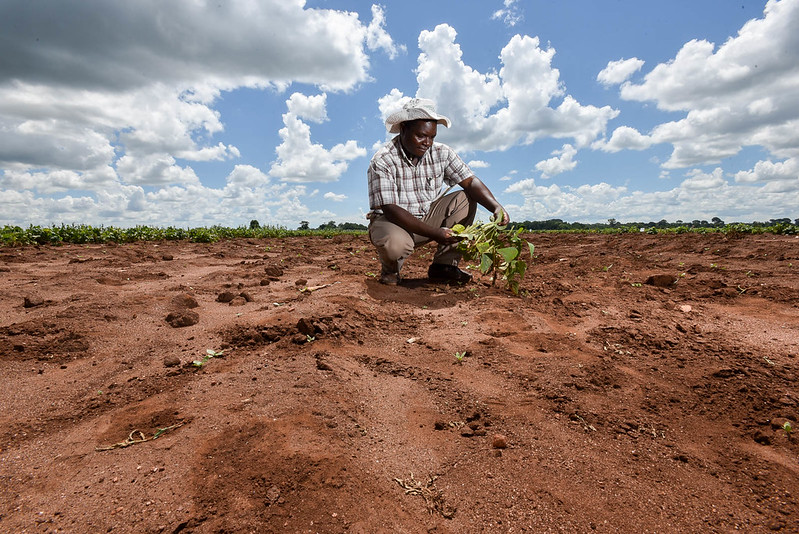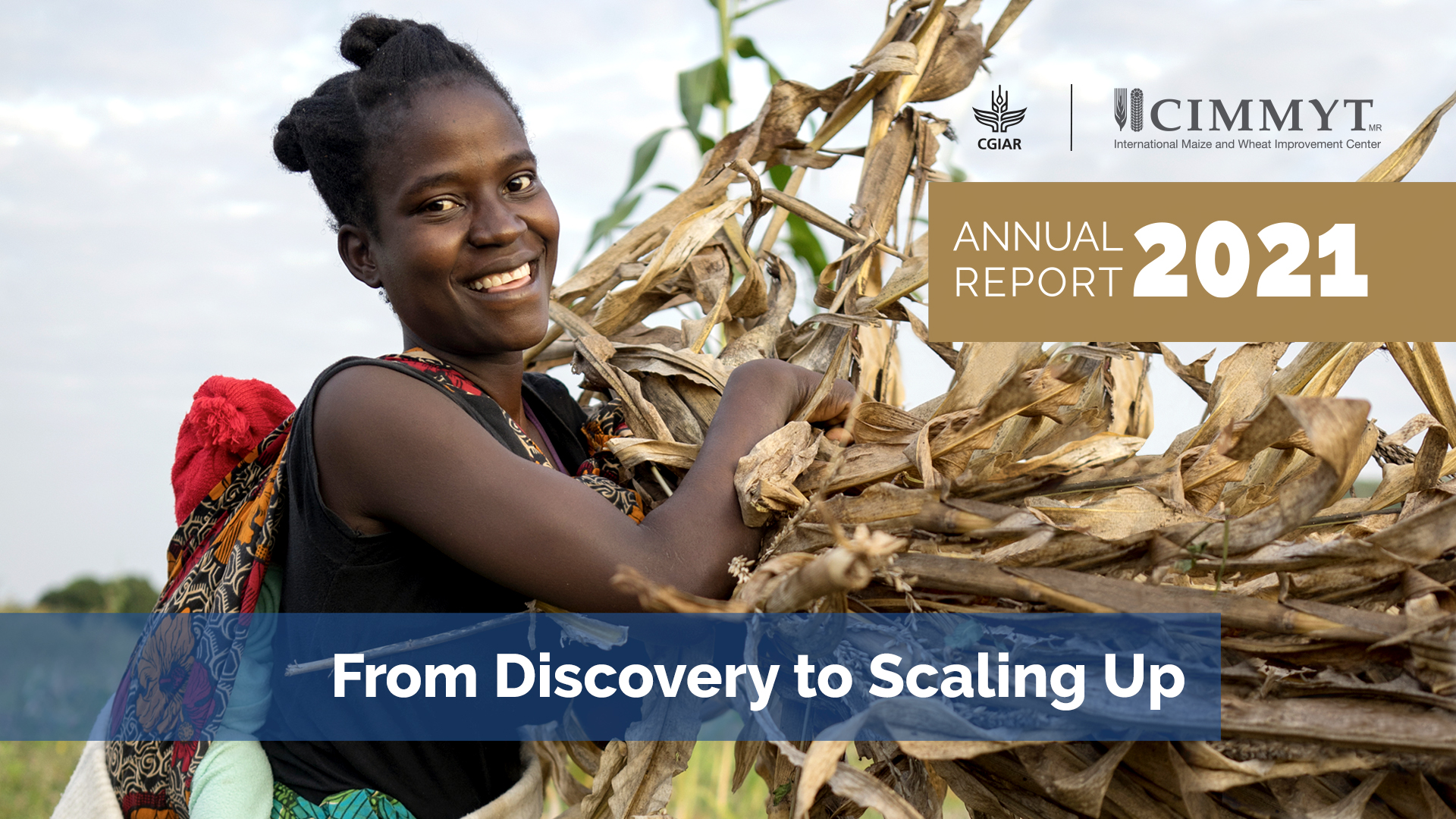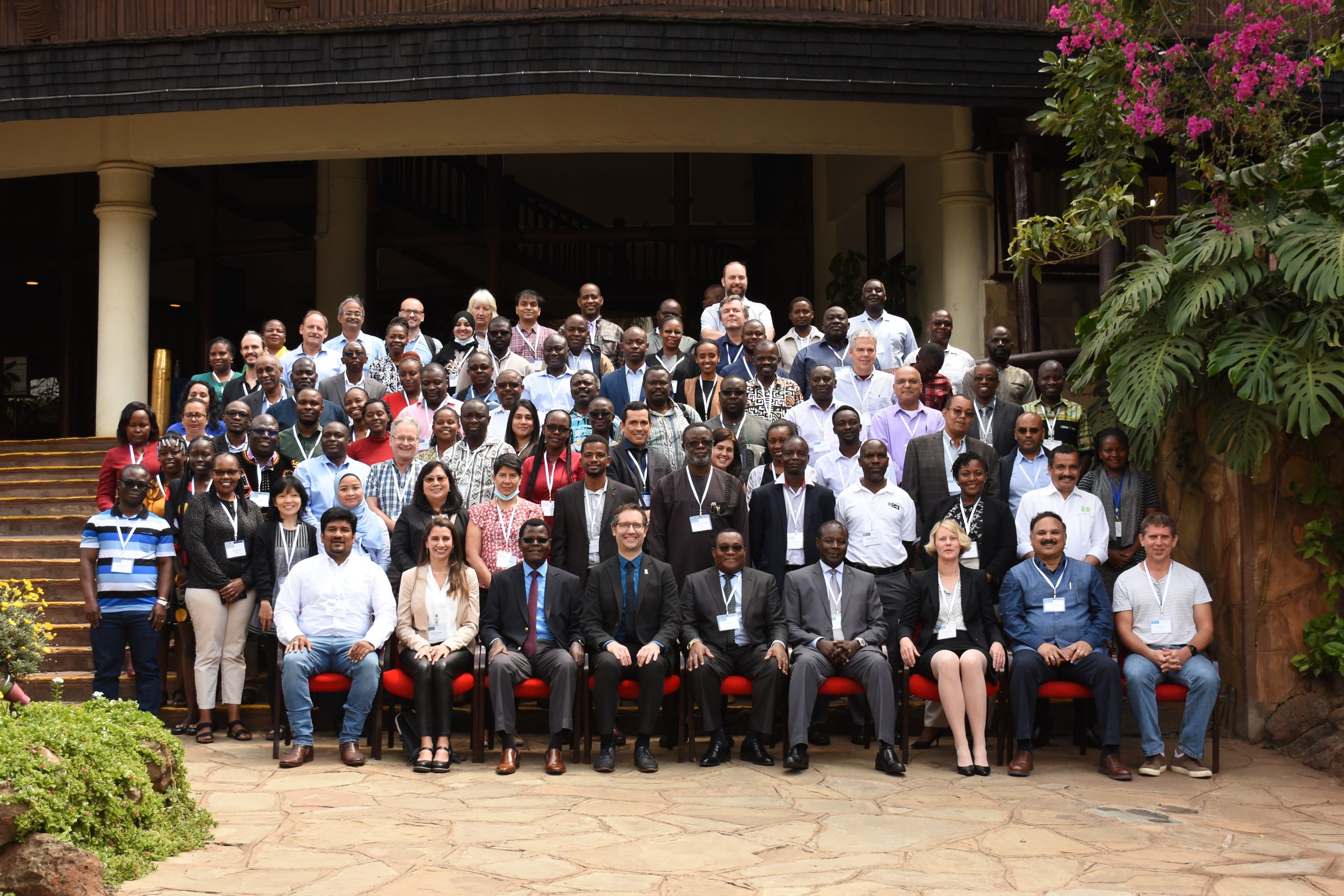
CGIAR together with national, regional, and international partners kicked off the Plant Health and Rapid Response to Protect Food Security and Livelihoods Initiative also known as the Plant Health Initiative in Nairobi, Kenya, on May 12-13, 2022. The Initiative’s inception meeting was fittingly held on the first-ever International Day of Plant Health on May 12 and was attended by over 200 participants (both in-person and virtual), representing diverse institutions.
The Plant Health Initiative targets a broad range of pests and diseases affecting cereals (especially rice, wheat and maize) and legumes such as beans, faba bean, chickpea, lentil, and groundnut; potato; sweet potato; cassava; banana; and other vegetables.
Speaking at the meeting, CGIAR Plant Health Initiative Lead and Director of Global Maize Program at the International Maize and Wheat Improvement Center (CIMMYT) noted that climate change, together with human activities and market globalization, is aggravating challenges to plant health, including outbreaks of devastating insect-pests and diseases. In addition, according to data from the African Union Partnership on Aflatoxin Control in Africa (AUC-PACA), 40 percent of commodities in local African markets exceed allowable levels of mycotoxins in food, causing adverse effects on diverse sectors, including agriculture, human health, and international trade.
“The CGIAR Plant Health Initiative is, therefore, a timely program for strengthening inter-institutional linkages for effective plant health management especially in the low- and middle-income countries in Africa, Asia, and Latin America, said Prasanna. “This calls for synergizing multi-stakeholder efforts to improve diagnostics, monitoring and surveillance, prediction and risk assessment of transboundary pests and pathogens, and implementing integrated pest and disease management in a gender-responsive and socially inclusive manner.”
Demand-driven multistakeholder approach
CGIAR Global Science Director for Resilient Agrifood Systems Martin Kropff reiterated the importance of the Initiative, and emphasized the need for a global plant health research-for-development consortium. He mentioned that all the CGIAR Initiatives, including the Plant Health Initiative, are demand-driven and will work closely with national, regional, and international partners for co-developing and deploying innovative solutions.
The chief guest at the event, Oscar Magenya, Secretary of Research and Innovation at Kenya’s Ministry of Agriculture, pointed out the need for a well-coordinated, multisectoral and multistakeholder approach to managing invasive pests and diseases. He recognized CGIAR’s contribution and partnership with the Government of Kenya through CIMMYT, especially in combating maize lethal necrosis and wheat rust in Kenya.
“As government, we invite the CGIAR Plant Health Initiative to partner with us in implementing the Migratory and Invasive Pests and Weeds Management Strategy that was launched recently [by the Kenya Government],” said Magenya.
Implications of Plant Health in Africa and globally
Zachary Kinuya, Director of Crop Health Program at the Kenya Agricultural and Livestock Research Organisation (KALRO) spoke on the importance of plant health management to African stakeholders, and observed that in addition to improved crop production, food and feed safety must be given adequate priority in Africa.
Director of the Plant Production and Protection Division at the UN Food and Agriculture Organization (FAO), Jingyuan Xia applauded CGIAR for launching the global Initiative. Through his virtual message, Xia stated that the goals of the two organizations are aligned towards supporting farmers and policy makers in making informed decisions and ultimately ending global hunger. He added that the CGIAR has strong research capacity in developing and disseminating new technologies.
CIMMYT Director General Bram Govaerts explained how negative impacts on plant health, combined with climate change effects, can lead to global production losses and food system shocks, including the potential to result in food riots and humanitarian crises. He challenged stakeholders in the meeting to resolve tomorrow’s problems today, through collective and decisive action at all levels.
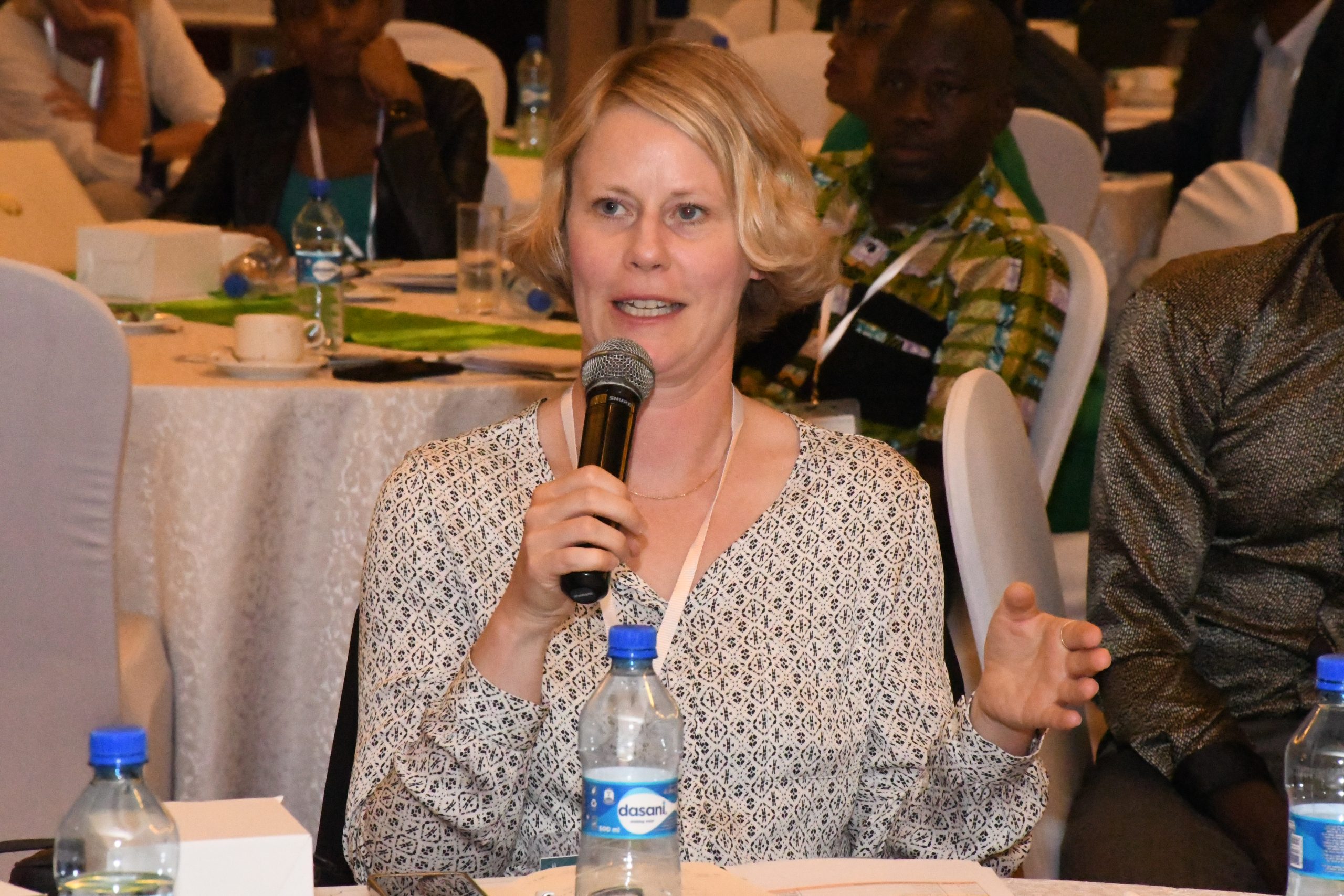
The German development agency (GIZ) Fund International Agricultural Research (FIA) Advisor Sarah Schmidt said that GIZ supports the Initiative because of its interest in transformative approaches in innovations for sustainable pest and disease management. Recognizing women’s major involvement in farming in Africa, Schmidt said there is a need to empower and equip women with knowledge on plant health as this will result to greater productivity on farms in Africa. “We welcome that the Plant Health Initiative dedicated an entire crosscutting work package to equitable and inclusive scaling of innovations,” she added.
Participants at the launch were also reminded by Ravi Khetarpal, Executive Secretary of the Asia-Pacific Association of Agricultural Research Institutions (APAARI), that the Initiative is now at the critical phase of Implementation and requires diverse actors to tackle different issues in different geographies. Ravi added that biosecurity and plant health are important subjects for the Asia-Pacific region, in view of the emergence of new pests and diseases, and therefore the need to save the region from destructive pest incursions.
Other online speakers at the launch included Harold Roy Macauley, Director General of AfricaRice & CGIAR Regional Director, Eastern and Southern Africa; Nteranya Sanginga, Director General of the International Institute of Tropical Agriculture (IITA) and CGIAR Regional Director, West and Central Africa; and Joaquin Lozano, CGIAR Regional Director, Latin America & the Caribbean.
Reflecting on gender, social inclusion, and plant health
Panel discussions allowed for more in-depth discussion and recommendations for the Initiative to take forward. The panelists delved into the progress and challenges of managing plant health in the Global South, recommending a shift from a reactive to a more proactive approach, with strong public-private partnerships for sustainable outcomes and impacts.
Gender inequities in accessing the plant health innovations were also discussed. The discussion highlighted the need for participatory engagement of women and youth in developing, validating and deploying plant health innovations, a shift in attitudes and policies related to gender in agriculture, and recognition and deliberate actions for gender mainstreaming and social inclusion for attaining the Sustainable Development Goals (SDGs).
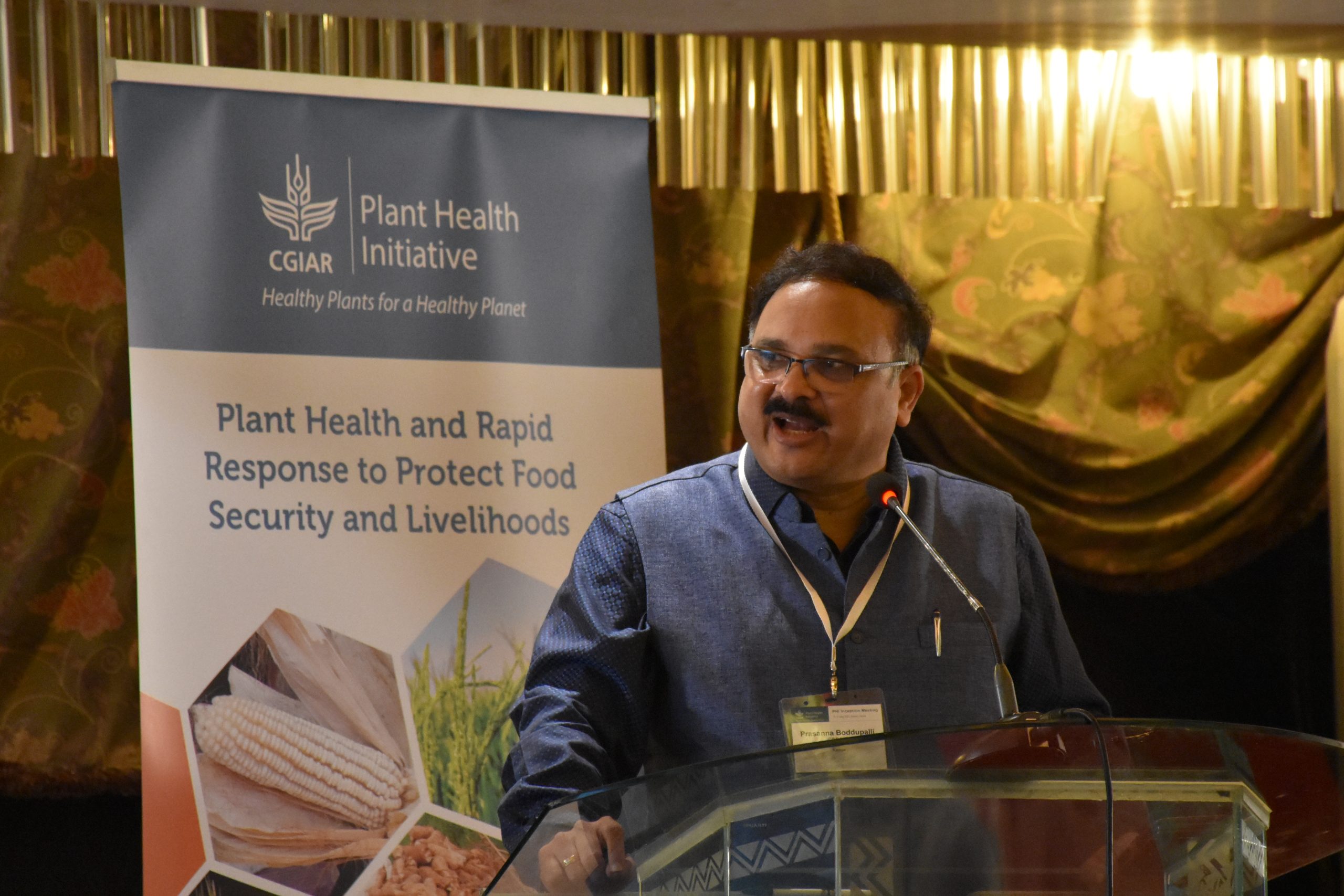
Charting the course for the Initiative
The Plant Health Initiative Work Package Leads presented the Initiative’s five specific work packages and reiterated their priorities for the next three years.
“We are looking forward to taking bold action to bring all players together to make a difference in the fields of farmers all over the world,” said Prasanna.
The Initiative is poised to boost food security, especially in key locations through innovative and collaborative solutions.
For more information, visit the CGIAR Plant Health Initiative page or download a brief.
Panel Discussion Presentations
“Plant Health Management in the Global South: Key Lessons Learnt So Far, and the Way Forward” moderated by Lava Kumar (IITA) with panelists: Florence Munguti [Kenya Plant Health Inspectorate (KEPHIS)], Maryben Chiatoh Kuo (African Union-Inter-African Phytosanitary Council), Roger Day (CABI) and Mark Edge (Bayer).
“Scaling Strategy, including Gender and Social Inclusiveness of Plant Health Innovations” moderated by Nozomi Kawarazuka (CIP), with panelists Jane Kamau (IITA), Alison Watson (Grow Asia), Sarah Schmidt (GIZ), Aman Bonaventure Omondi (Alliance Bioversity-CIAT) and Nicoline de Haan (CGIAR Gender Platform)
Work Package Title and Leads
Work Package 1: Bridging Knowledge Gaps and Networks: Plant Health Threat Identification and Characterization
Lead: Monica Carvajal, Alliance of Bioversity-CIAT
Work Package 2: Risk Assessment, data management and guiding preparedness for rapid response
Lead: Lava Kumar, IITA
Work Package 3: Integrated pest and disease management
Lead: Prasanna Boddupalli, CIMMYT
Work Package 4: Tools and processes for protecting food chains from mycotoxin contamination
Lead: Alejandro Ortega-Beltran, IITA
Work Package 5: Equitable and inclusive scaling of plant health innovations to achieve impacts Co-leads:Nozomi Kawarazuka, International Potato Center (CIP), Yanyan Liu, International Food Policy Research Institute (IFPRI)
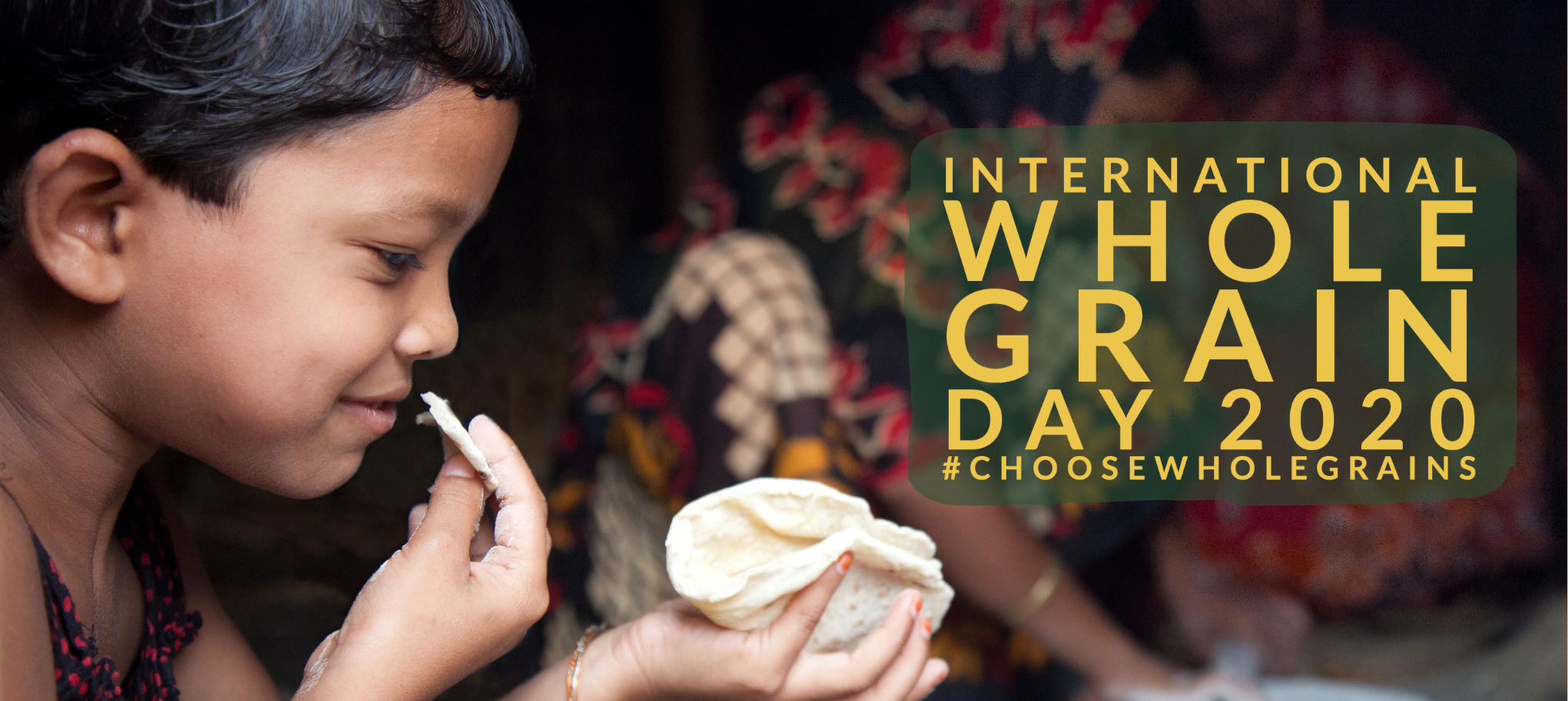
 Nutrition, health and food security
Nutrition, health and food security 